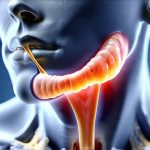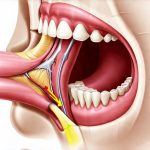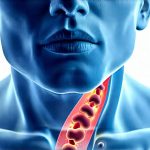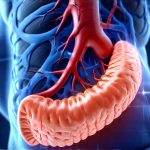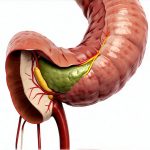Gastroesophageal reflux disease (GERD), often experienced as frequent heartburn, is a surprisingly versatile condition capable of manifesting in ways far beyond typical digestive discomfort. While most people associate GERD with symptoms like acid regurgitation and burning in the chest, its effects can radiate to seemingly unrelated parts of the body, leading to confusion and misdiagnosis. The intricate connection between the esophagus, nervous system, and other bodily structures means that refluxed stomach acid isn’t always localized; it can trigger a cascade of events that result in pain or discomfort in areas like the jaw and ears – locations many wouldn’t immediately link to digestive issues. Understanding these potential connections is crucial for accurate diagnosis and effective management.
This article will delve into the often-overlooked relationship between GERD and referred pain, specifically focusing on how it can present as jaw or ear discomfort. We’ll explore the physiological mechanisms at play, differentiate GERD-related symptoms from other conditions with similar presentations, and discuss potential avenues for relief. It’s important to remember that self-diagnosis is never recommended; this information serves to educate and empower individuals to have informed conversations with their healthcare providers about their experiences. Recognizing the possibility of a link between seemingly disparate symptoms can lead to earlier diagnosis and improved quality of life.
Referred Pain: The Body’s Complex Communication System
Referred pain is a phenomenon where pain is felt in an area different from its actual source. This occurs because nerves share pathways, and the brain sometimes struggles to pinpoint the precise origin of a signal. In the case of GERD, the vagus nerve plays a significant role. The vagus nerve is a long cranial nerve that extends from the brainstem down through the neck and into the abdomen, innervating many organs including the esophagus, stomach, ears, and jaw. When acid reflux irritates the esophagus, it can stimulate the vagus nerve, sending signals to the brain. The brain may then misinterpret these signals as originating from the ear or jaw because those areas share common neural pathways with the esophagus.
This isn’t simply a matter of “imagining” pain; it’s a neurological reality. The brain prioritizes processing information efficiently, and sometimes that means taking shortcuts in identifying the source of discomfort. This is why someone experiencing GERD might describe their earache or jaw pain as feeling very real, even though there’s no direct problem with their ears or jaws themselves. Furthermore, the trigeminal nerve, responsible for sensation in the face and jaw, can also be affected by vagal stimulation from esophageal issues.
The concept of referred pain highlights how interconnected our bodies are. It explains why conditions affecting internal organs can sometimes manifest as external symptoms, leading to diagnostic challenges. It’s vital not to dismiss seemingly unrelated pain; exploring potential underlying causes like gerd management is often necessary.
The Ear-Esophagus Connection & Jaw Discomfort
The close anatomical and neurological relationship between the ear and esophagus explains why GERD can cause ear pain or a feeling of fullness in the ears. Specifically, the Eustachian tube – which connects the middle ear to the back of the throat – is located relatively near the esophagus. Acid reflux can irritate the tissues around the Eustachian tube, causing inflammation and pressure changes that lead to discomfort. This may present as: – Aching or burning in the ear – Feeling of fullness or blockage – Tinnitus (ringing in the ears) – Dizziness – Ear infections (secondary to chronic irritation).
Similarly, jaw pain stemming from GERD is often linked to muscle tension and nerve referral. The muscles involved in chewing (mastication) can become tense due to subconscious clenching or grinding of teeth, especially during periods of stress or discomfort associated with heartburn. The vagus nerve’s influence on these muscles can also contribute to this tension. Acid reflux can trigger a cascade of responses that ultimately lead to temporomandibular joint (TMJ) dysfunction, which presents as jaw pain and difficulty chewing.
The experience is often described as a dull ache rather than sharp, stabbing pain—a key differentiator from dental problems. Moreover, the timing of the pain – often coinciding with meals or lying down – can be a strong indicator that GERD might be involved. It’s crucial to differentiate between gerd related jaw pain and dental issues; both require distinct approaches.
Diagnosing GERD as a Source of Pain
Pinpointing GERD as the root cause of ear or jaw discomfort requires careful evaluation by a healthcare professional. A thorough medical history is the first step, focusing on: – Frequency and severity of heartburn symptoms – Presence of other GERD-related issues like acid regurgitation or difficulty swallowing – Timing of pain in relation to meals, body position, or stress levels – Any other associated symptoms (e.g., sore throat, cough, hoarseness).
Following the medical history, several diagnostic tests may be employed. These include: 1. Endoscopy: A procedure where a thin, flexible tube with a camera is inserted into the esophagus to visualize any inflammation or damage. 2. Esophageal manometry: Measures the pressure and movement of muscles in the esophagus. 3. pH monitoring: Determines the amount of acid refluxing into the esophagus over a period of time (usually 24 hours). It can be done with a catheter inserted through the nose, or wirelessly using a capsule attached to the esophageal wall.
It’s important to rule out other potential causes of ear and jaw pain before attributing it to GERD. These include dental problems (cavities, TMJ disorder), ear infections, sinus infections, neurological conditions, and even cardiac issues. A differential diagnosis is crucial for ensuring accurate treatment. Remember that diagnostic testing should always be guided by a medical professional. Consider whether food sensitivities could also play a role in your symptoms.
Treatment Options & Lifestyle Modifications
Managing GERD-related pain in the ears or jaw involves addressing the underlying reflux itself. This typically starts with lifestyle modifications: – Dietary changes: Avoiding trigger foods like caffeine, alcohol, chocolate, spicy foods, and fatty meals. – Elevating the head of your bed: Helps prevent acid from flowing back up into the esophagus during sleep. – Eating smaller, more frequent meals: Reduces pressure on the stomach. – Weight management: Obesity can exacerbate GERD symptoms. – Avoiding lying down immediately after eating.
If lifestyle modifications aren’t enough, medications may be prescribed. These include: 1. Antacids: Neutralize stomach acid for quick relief. 2. H2 blockers: Reduce acid production. 3. Proton pump inhibitors (PPIs): More potent acid suppressors used for longer-term management. It’s crucial to discuss medication options with your doctor, as long-term use of some medications can have side effects.
Long-Term Management & Prevention
Long-term GERD management is about more than just symptom relief; it’s about preventing future flare-ups and minimizing complications. This involves consistent adherence to lifestyle modifications, regular follow-up with your healthcare provider, and addressing any underlying factors that might contribute to reflux. Consider stress management techniques like yoga or meditation, as stress can worsen GERD symptoms. Proactive management is key to living comfortably with GERD.
Furthermore, be mindful of potential interactions between medications and other health conditions. Regularly review your medication list with your doctor and pharmacist. Finally, remember that seeking timely medical attention is crucial for accurate diagnosis and appropriate treatment. Don’t hesitate to consult a healthcare professional if you suspect GERD might be contributing to your ear or jaw pain – early intervention can significantly improve your quality of life. Acid reflux doesn’t always present as expected, and understanding this is the first step towards finding relief. If you’ve been eating the same food daily, consider if that could be contributing to your digestive issues. Also, explore whether chewing gum can help manage your symptoms.


